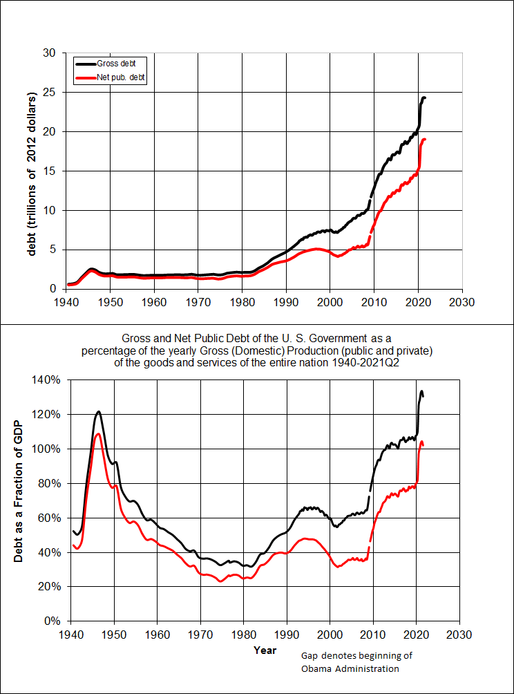I have several problems with that line of thinking, we were not elected to be the world's policeman and it is not in our founding charter, the Constitution.
The Constitution does not prohibit an engaged foreign policy.
There is also the thinking that our interference and support for the various flavors of our economic interest through the years has prevented the natural order of civil wars for people to decide on their own how they will be run rather than some colonial power deciding what is best for them.
Without doubt, the U.S., like any other nation, has made some foreign policy mistakes. IMO, contributing toward East Asian reconstruction and then stability following World War II was one of the better long-term policies. The absence of warfare among let's say China and Japan and the economic miracles that saw large parts of East Asia become economic powerhouses so to speak have greatly benefited the U.S. The economic benefits from trade dwarf both the costs of reconstruction and the costs of maintaining bases in that part of the world.
We should have started in the 70's moving away from an oil based economy when we passed peak oil.
No disagreement about moving away in the 1970s. Unfortunately there was a failure to learn from the twin energy shocks of the 1970s and, the early verdict appears that there has also been a failure to learn from the 2008 oil price spike.
I can not morally justify our military domination of another country's resources based on our own stupidity in the past and present greed.
It is their oil and they have a right to do with it as they choose.
I didn't advocate that at all. My point was that the U.S. needs a capability to keep the Persian Gulf's shipping lanes open e.g., to prevent let's say Iran from shutting down those lanes to serve its political interests at the expense of the region's other sovereign states and their trading partners. Those shipping lanes are one of the world's chokepoints and no country should be able to block shipping in those vital international waters. Now, if the region's countries choose, for whatever reason, not to sell oil, that's an entirely different proposition from what I was discussing.
Right, both positive and negative effects from an interventionist foreign policy.
Whether or not the U.S. chooses a foreign policy of engagement vs. abdication has trade-offs, including budgetary ones. A more focused foreign policy might provide better utilization of human and financial resources and greater coherence with respect to national interests. IMO, abdication would go too far and the adverse impact on U.S. interests would outweigh any short-term financial savings that might result. In a worst-case scenario, abdication could prove as disastrous as non-interventionism was during the early years of WW II and, with the U.S. entering the war at a more advanced stage in that global conflict, the costs (human, economic, and financial) were far greater than they would have been had the U.S., for instance, unequivocally pledged to come to France's or Britain's aid were Germany to attack them (possible deterrence) and done so immediately when those red lines were crossed (less war damage, quicker end to the war, etc.).
I feel those interests should be limited to defense, in keeping with our ethical and debt reduction goals.
There is broad consensus among the major foreign policy schools (Liberal internationalism, Realism, and Neo-conservatism) over a large share of interests, even as those schools have differences e.g., the neo-conservatives are more willing to justify the use of force to advance democracy (something that I think is overreach, as democracy is function of traditions, laws, institutions, etc., not who heads a country or whether a country holds elections). The main point is that the U.S. is not likely anytime soon, whether it is headed by a Democrat or Republican, to embrace abdication. So, a defense posture based strictly on such an approach is not a likely outcome.

